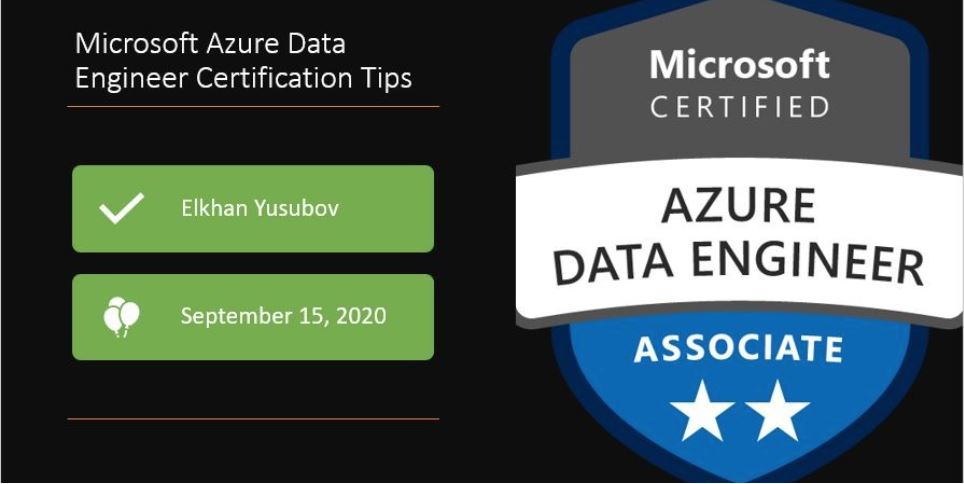Hello my friends,
Last week, I was able to knockout the second “Azure Data Engineer” exam and get the certification. Most importantly, I got a chance to have a deep dive into Azure Data technologies from a holistic solutioning perspective. The main focus areas of this certification are neatly visualized below:

Those exam objectives, are high level focus areas that cover DP-200 and DP-201 exams. The first exam is more technical and has focus toward implementation while the second one is shifting gears toward design and solutioning options based on project requirements.
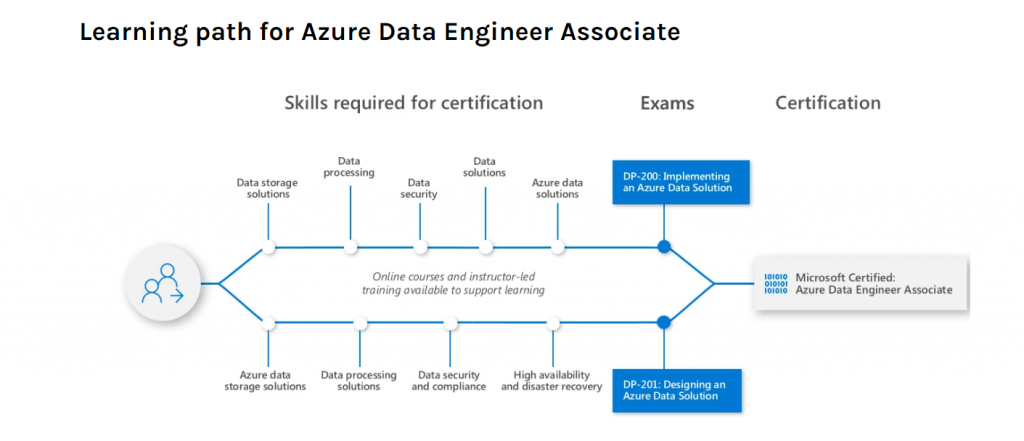
As dealing with data solutions was not my primary work responsibility, I was really impressed by depth of service options, capabilities and tools that could accelerate many data solutioning projects.
Starting an “Azure Data Engineering” learning journey will help any cloud professional to get deeper understanding on designing different data solutions based on project requirements. In fact, it helped me to get a well informed understanding technical limitations in each solution; like deciding between different data processing and/or storage options and their respective security configurations. Well, enough about intro, let’s look into what it means to be an “Azure Data Engineer” 😑🤔
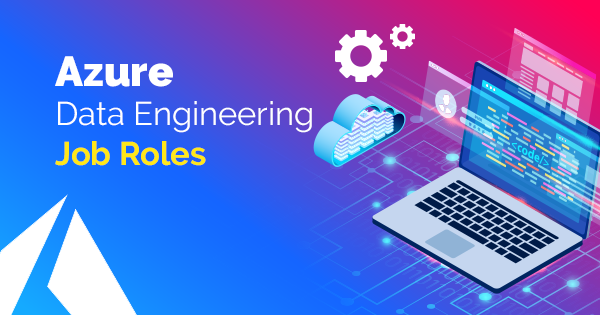
Azure Data Engineer vs Database Administrator
A Database Administrator’s (aka, DBA) job is to ensure everything is working smoothly with things like performance tuning and monitoring, data migrations of third party systems, performing backups, checking performance, and load balancing, and everything to do with databases operations. On the other hand, DBA could also perform data engineering tasks in a small or mid-size organisations.🤠
Azure data engineers are responsible for data-related implementation tasks that include provisioning data storage services, ingesting streaming and batch data, transforming data, implementing security requirements, implementing data retention policies, identifying performance bottlenecks, and accessing external data sources. They are responsible for data-related design tasks that include designing Azure data storage solutions that use relational and non-relational data stores, batch and real-time data processing solutions, and data security and compliance solutions.👩🚀👨🎓
Getting ready for each exam 📆
There is no right or wrong starting point with this certification. I would start with the one that you find more familiar. Here is the exam flow diagram from the official Microsoft learn website:

Exam study resources for DP-200: Implementing an Azure Data Solution
- Official exam website and exam objectives
- Microsoft Learn modules for Azure Data Engineer
- Microsoft documentation resources: ElYusubov/DP-200-References
- Microsoft Learn labs: ElYusubov/DP-200-References
- A cloud guru resource for DP-200 exam
- Plural-sight videos on Azure DP-200

This exam really tests your ability to demonstrate good understanding of setting-up a data processing pipeline and configurations of each component. A lot of questions were on optimizing, operating, loading and reading data from Azure SQL DB and Synapse Analytics (formerly SQL DW), I found them tricky and quite challenging.
The DP-200 exam has around 40-48 questions and is somewhat similar to other Azure Associate exams. The exam duration is fixed around 180 minutes with additional 30 minutes for reading instructions, signing the non-disclosure agreement, and giving feedback to each question at the end.
Expect different types of questions (single choice, multi-choice, binary choice and sorting order) and one or two case studies.

Exam study resources for DP-201: Designing an Azure Data Solution
- Official exam website and exam objectives
- Microsoft Learn modules for Azure Data Engineer
- Microsoft documentation resources: ElYusubov/DP-201-References
- Microsoft Learn labs: ElYusubov/DP-201-References
- A cloud guru resource for DP-201
- Plural-sight videos on Azure DP-201
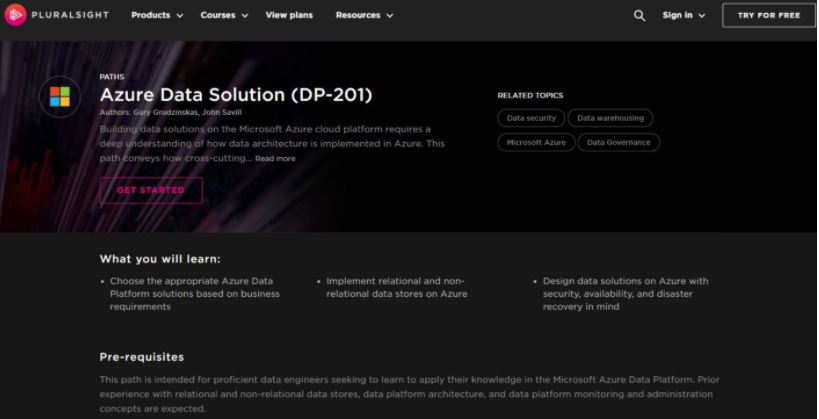
My exam experience with DP-201 was much smoother, as mainly questions were focused on design related topics and solutioning options. As an Azure Architect – you may find them familiar and a bit easier than the previous exam.
This exam was 150 minutes long and had 42 questions, with much more case studies (i got three on my exam). There were few questions with set of drop-down choices that were easy and tricky at the same time.
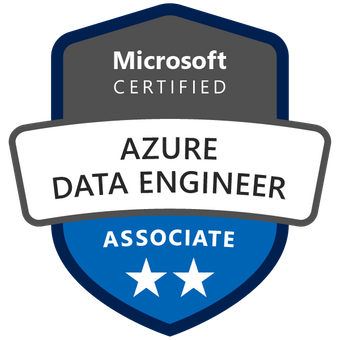
That is it folk, i tried to share and illustrate my exam experiences in this post. I hope you will find it helpful and apply to your “Data Engineer-ing” journey.
Please, feel free to share your experience or thoughts, as i am planning to keep this post up to date with your valuable contributions going forward. #keeplearning
Stay safe and be the 4th with you! #nevergiveup


